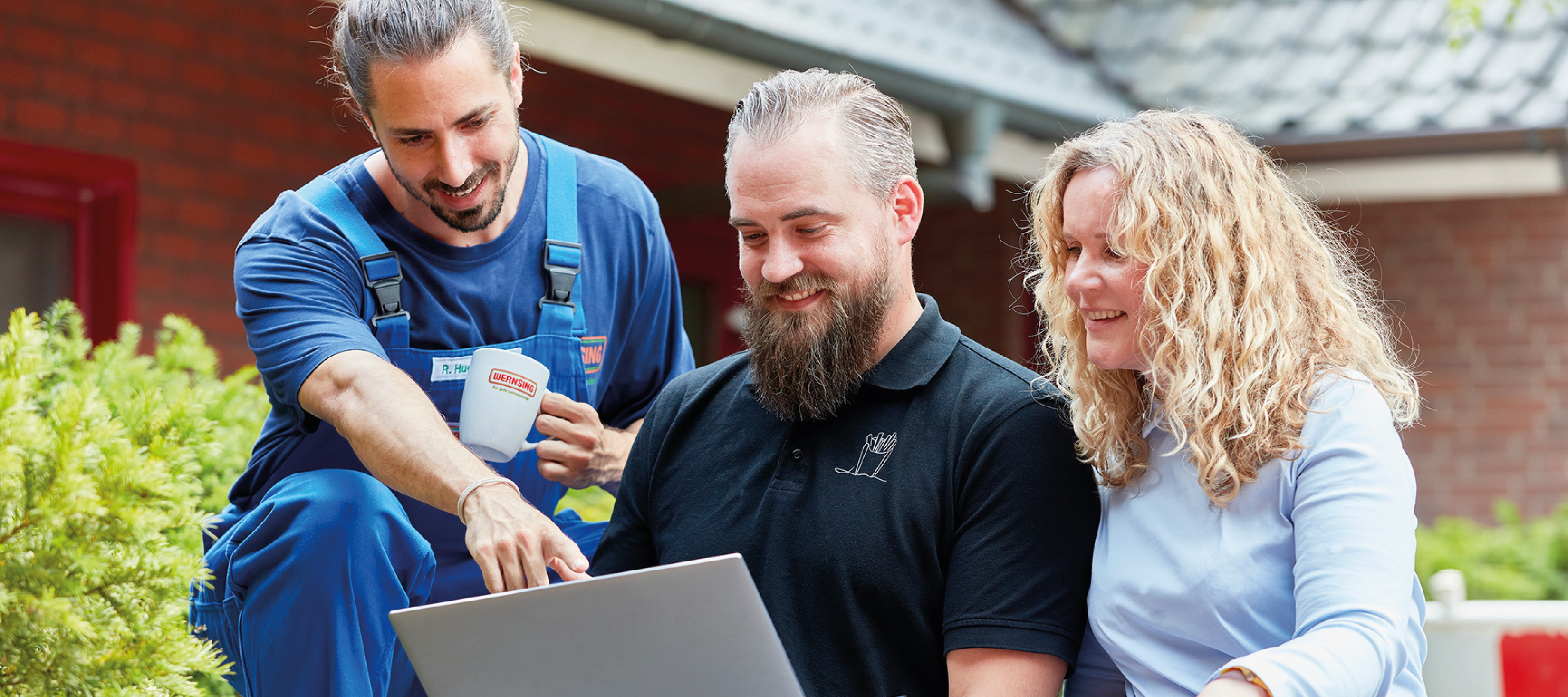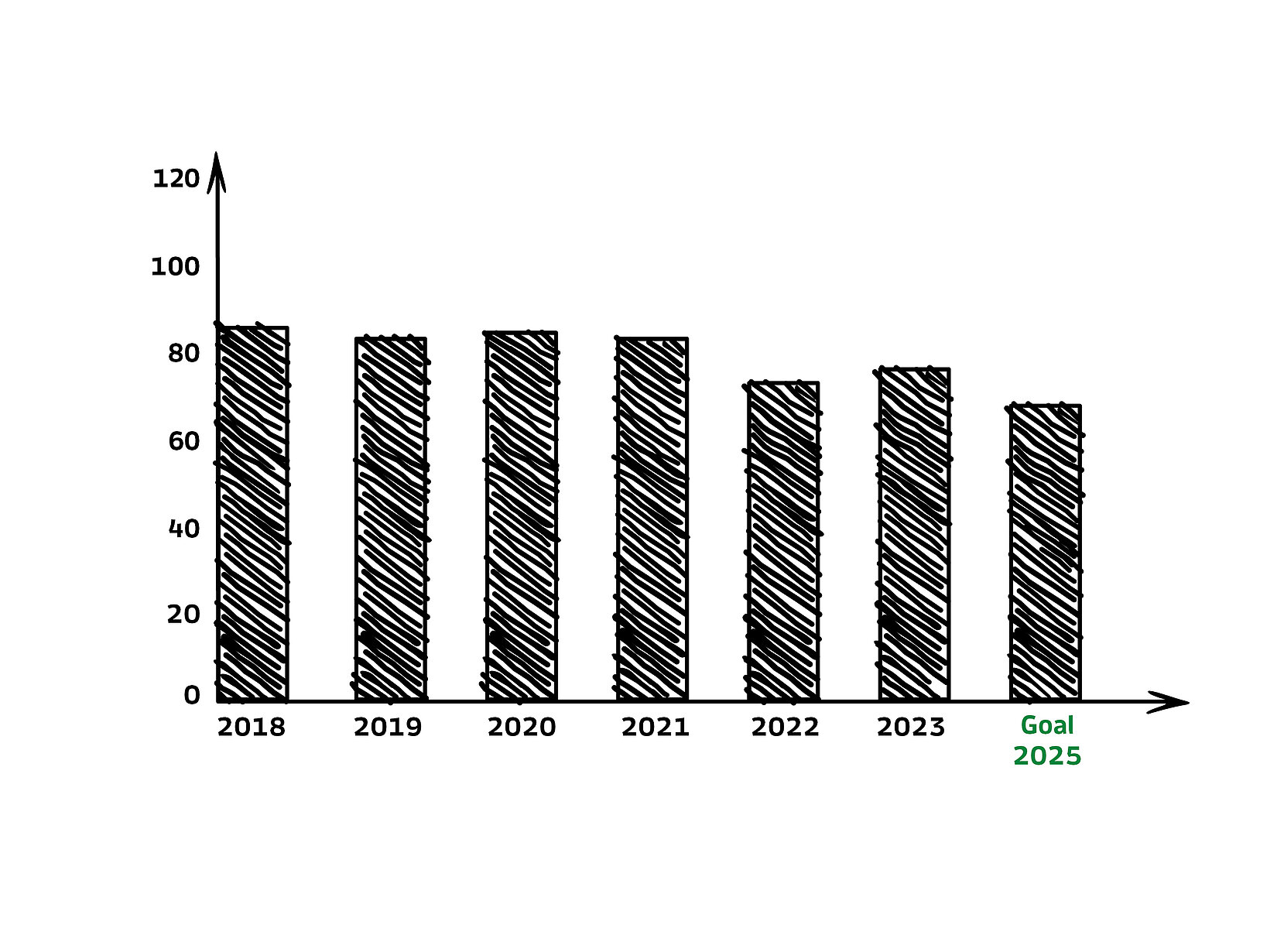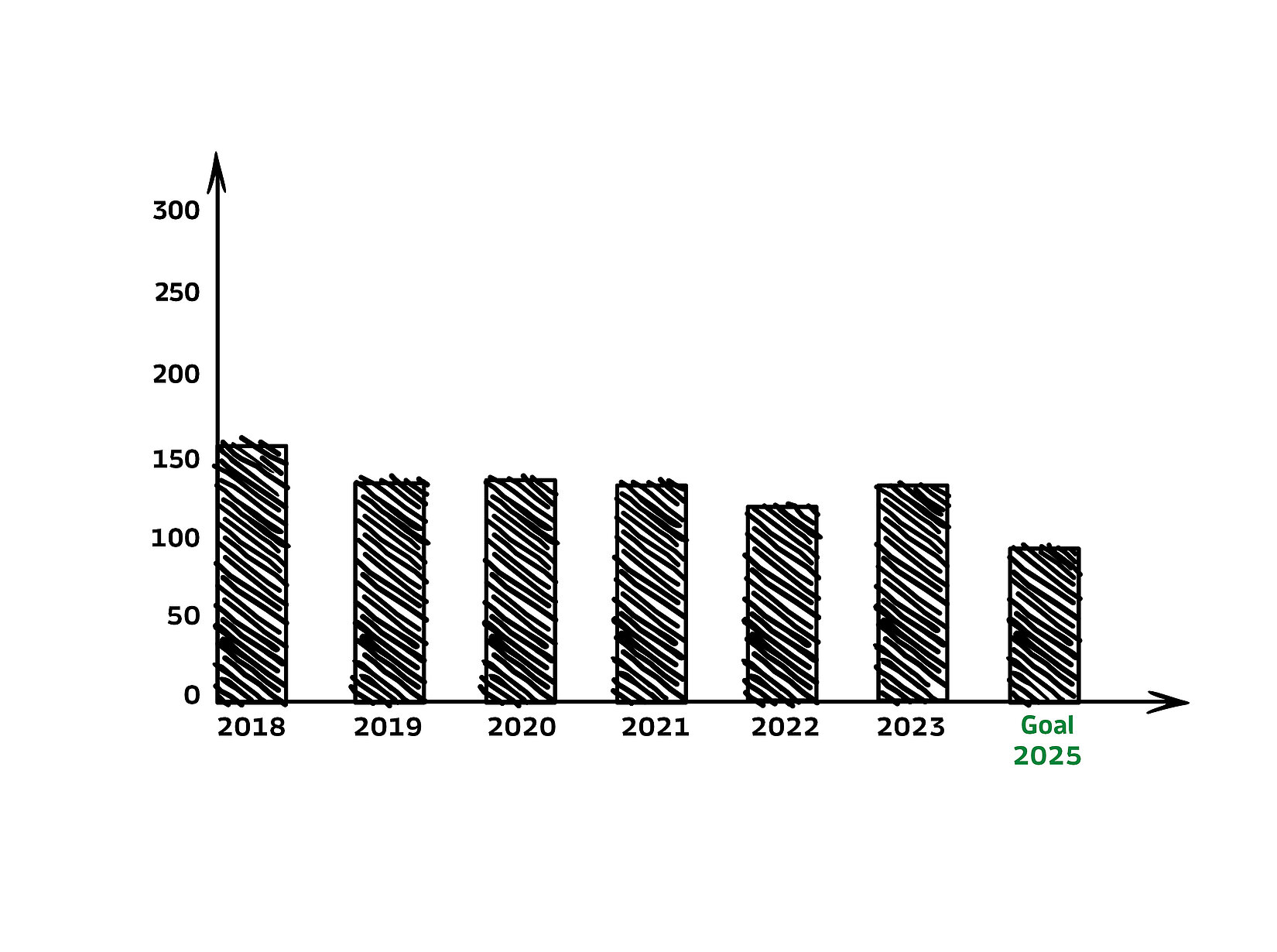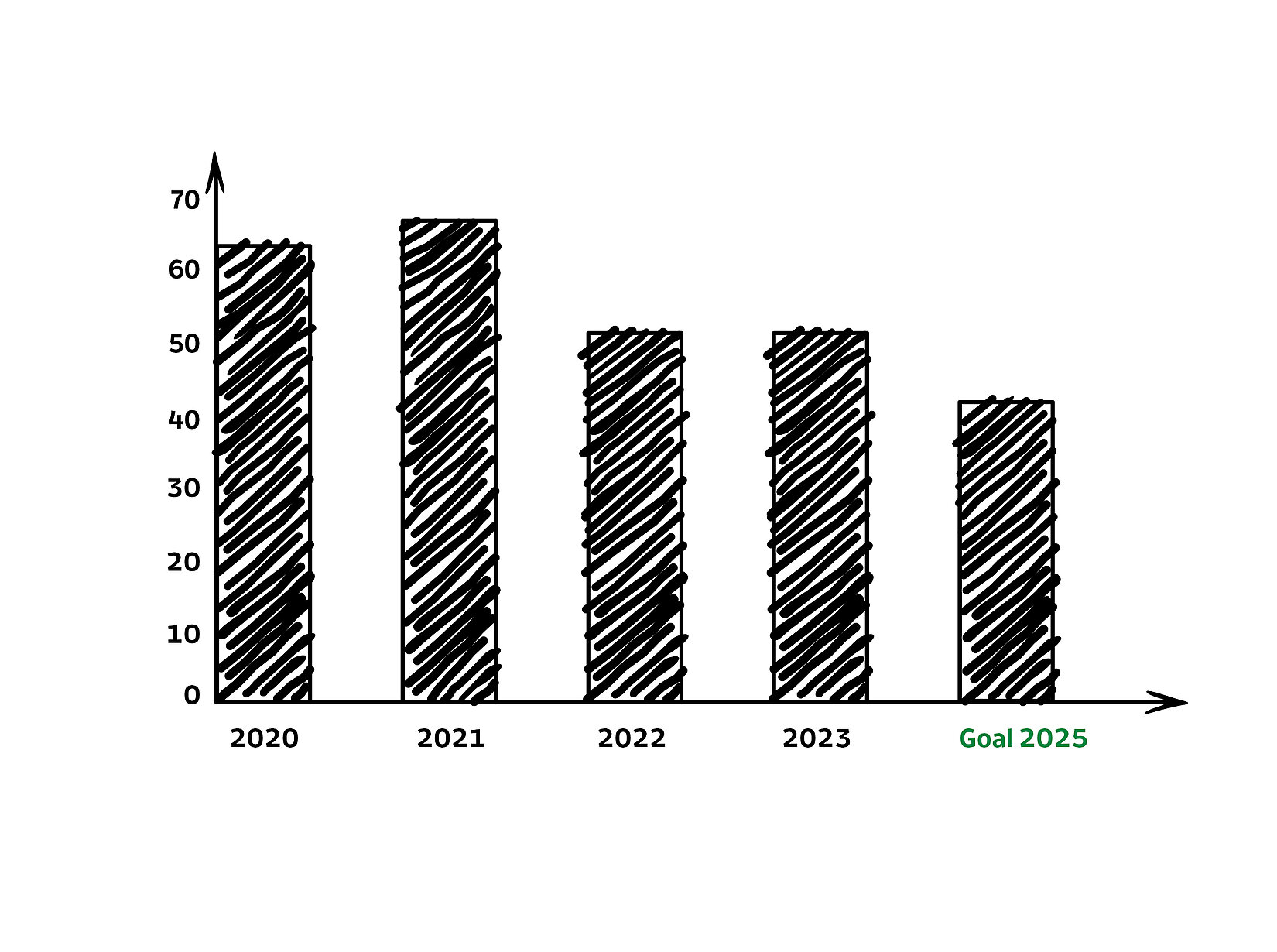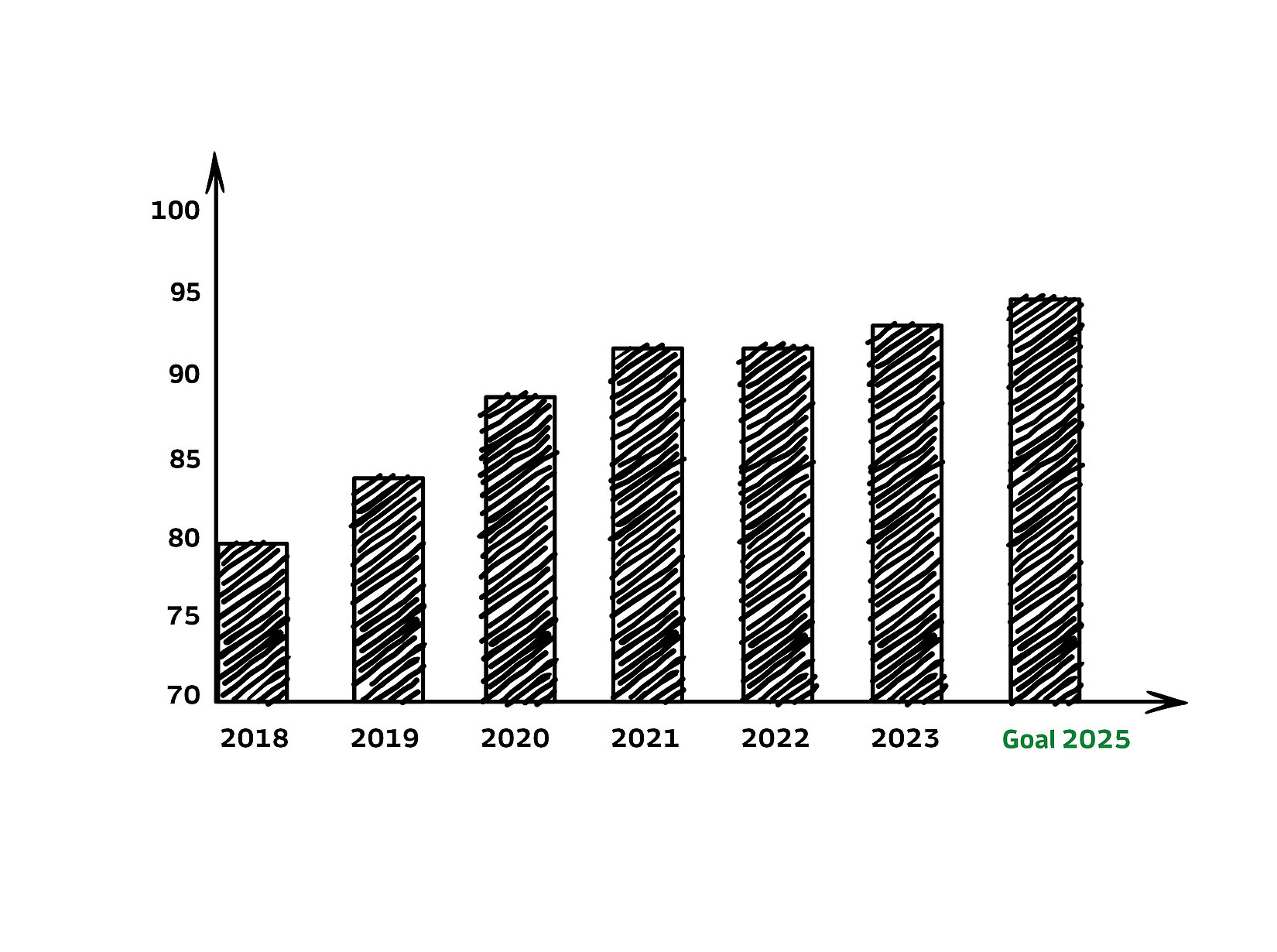#GETTINGBETTERTOGETHER
Our sustainability goals
As part of our integrated sustainability management programme, we are pursuing a number of different goals in the three areas of ecology, economy and social affairs.
Here are some of our sustainability goals.
Goal 1
Reduce the total energy consumption for production activities by 23.5 % per ton of finished product by 2025 compared to 2018
Plans for 2024:
- Tests to store temperatures in central warehouse 2, monitoring of the coldsense tool installed in ZL1 (sensors)
- Optimization of production orders with the aim of reducing energy consumption
- Increased use of business intelligence (controlling tools)
- Implementation of a forecasting tool to predict electrical energy consumption
- Conversion and installation of a new refrigeration track to generate 0 °C cold with the ammonia refrigeration system in Plant 1
- Installation of a new heat recovery system in the TK1 French fries production area
- Optimization of the autoclave controls
- Separation of the refrigeration rails, creation of performance-adjusted temperature zones in the area of the refrigeration systems
- Examination of options for reducing the required steam pressure in parts of plant 1, plant 2 and plant 3
Goal 2
Reduce our CO2 emissions by more than 70 % per ton of finished product by 2025 compared with 2018
Plans for 2024:
- Pursuing the commitment to the requirements of the Science Based Target Initiative as the Wernsing Food Family
- Developing and implementing a decarbonization strategy for the Addrup site
- Increase in in-house electricity generation (connection of wind turbines and construction of a PV parking lot roof)
- Integration of ground-mounted PV systems into our company's own medium-voltage grid
- Participation in municipal heat planning
Goal 3
Reduce or maintain average fuel consumption for the long-distance fleet to below 26.5 l/100 km by 2030
The long-distance fleet is continuously renewed. The fleet is monitored by a modern Fleetboard system (telematics system) with the following objectives:
- Lower fuel consumption
- Lower costs for maintenance and repair work
- Reduced risk of accidents
- Avoidance of fines
The target of 26.5 l/100 km was achieved in 2023. Now the target is being changed to: Maintain the average fuel consumption for the company's own long-distance fleet at below 26.5 l / 100 km by 2030.
Goal 4
Reduce the work-related injury rate (1,000-man rate) by 20 % by 2025 compared to the baseline year 2020
Activities in 2023:
An occupational safety day was held in April 2023, especially with the trainees. Shop floor management was expanded to include occupational safety and an electronic display was installed in a test department in parallel with shop floor management to show the accident-free days for the department. In addition, the LOTO (Lockout/Tagout) system for safely shutting down and decommissioning systems was introduced in other departments.
Outlook for 2024:
- Planning training courses for safety officers (m/f/d)
- Conducting safety training for ladder and shelf inspectors (m/f/d)
- Integration of occupational safety into the existing shop floor management of the departments
Goal 5
Increase the recyclability of the packaging used by volume to more than 95 % by the end of 2025
We have set ourselves the goal of achieving 95 % recyclability of our packaging by 2025. Last year, we were once again able to successfully complete several projects, so that we succeeded in achieving a recyclability ratio of 93 %.
We aim to achieve the target of 95 % by reducing the amount of material used for non-recyclable packaging and, in parallel, focusing on the recyclability of packaging. Among other things, extensive tests were carried out on the application of plastic labels.
Measures 2024:
- Discussions with suppliers on changes (omitting wrapping film on delivery, reviewing the use of reusable containers for raw materials)
- Projects in the area of packaging materials (switching to recyclable PP film)
